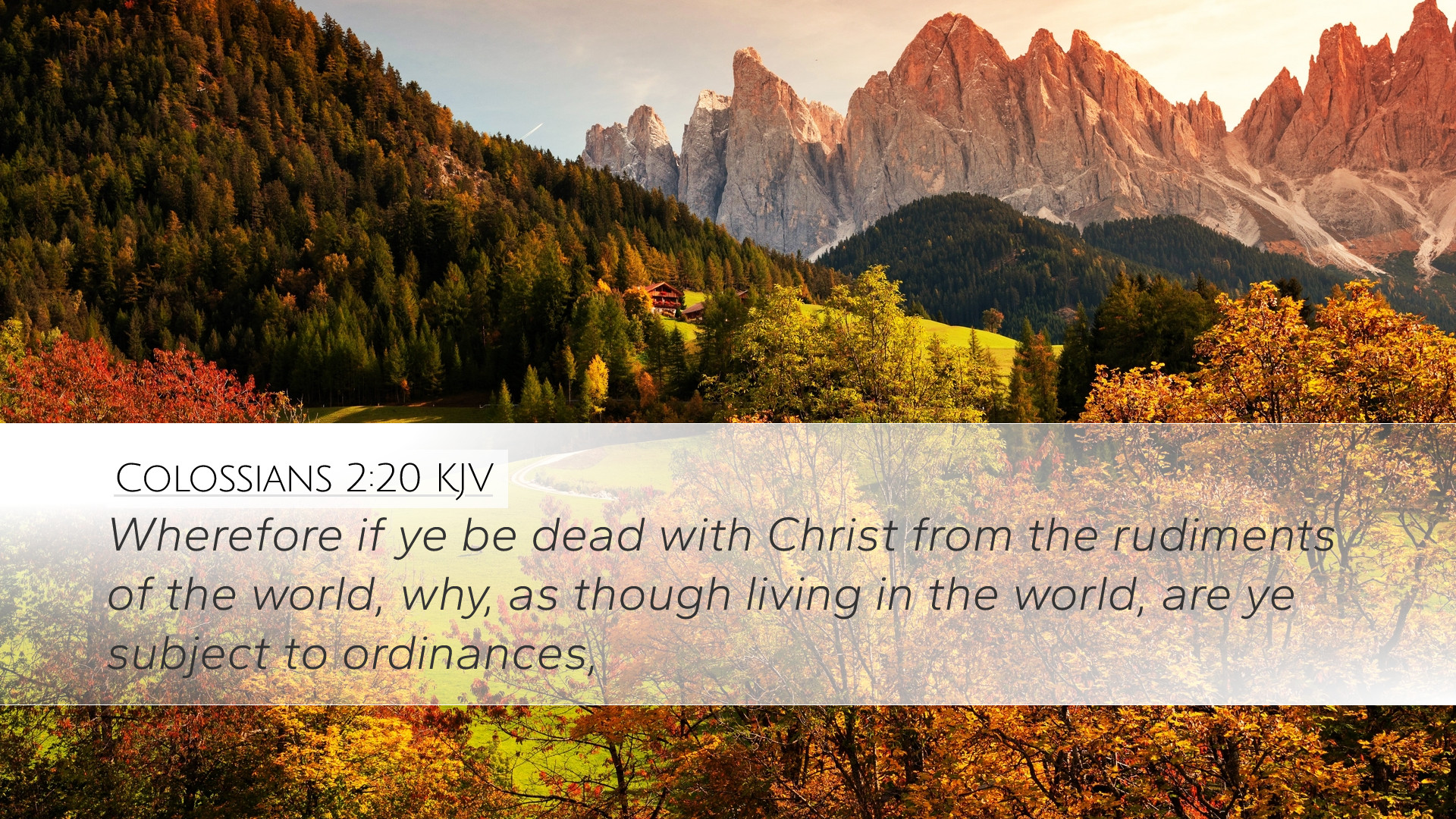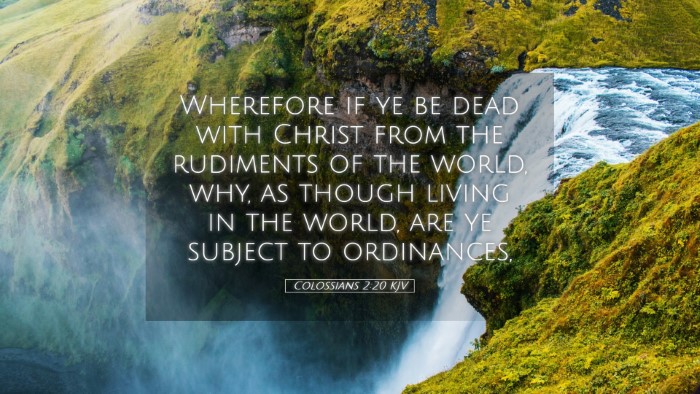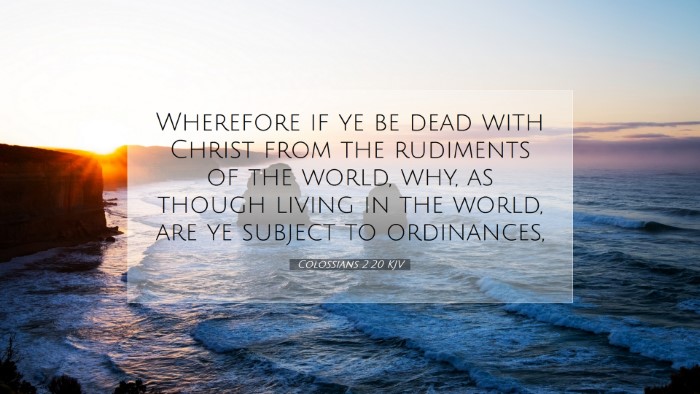Commentary on Colossians 2:20
Verse: "Therefore, if you died with Christ from the basic principles of the world, why, as though living in the world, do you subject yourselves to regulations?" (NKJV)
Introduction
The Apostle Paul's letter to the Colossians addresses various issues concerning the supremacy of Christ and the implications of the believer's identification with Him in His death and resurrection. Colossians 2:20 serves as a critical verse, integrating theological conceptions of death to the world and the implications of living by worldly regulations.
Contextual Overview
This verse comes amidst a series of exhortations where Paul cautions the Colossian believers against false teachings that rely on human traditions and worldly principles. The emphasis on dying with Christ sets the framework for understanding our new identity and the consequential rejection of worldly regulations.
Matthew Henry's Insights
Matthew Henry emphasizes the spiritual reality of believers being dead to the elemental principles of the world due to their union with Christ in His death. He notes that this death to the world is not a literal cessation of life but a spiritual transformation. Henry explains:
- Union with Christ: Believers have a mystical union with Christ which signifies a break from the dominion of worldly principles.
- Freedom from Regulations: The regulations imposed by the world often lead to a bondage that the believer is no longer subject to, as they are to live in the freedom granted by Christ.
- Spiritual Awareness: Christians should be spiritually discerning; living according to the world is contradictory to their status as those who have died with Christ.
Albert Barnes' Commentary
Albert Barnes expands upon the theological implications of being "dead with Christ," noting that this concept represents a complete renunciation of the world's values and systems. He stresses:
- Implication of Death: The death referred to is both a positional and experiential reality, highlighting that believers are to feel dead to sin and live unto righteousness.
- Rejection of Legalism: Barnes argues that the imposition of human regulations represents a form of legalism that contrasts the grace and liberty found in Christ.
- Question of Subjection: The rhetorical question posed by Paul serves to highlight the absurdity of living under human regulations when believers have experienced true freedom in Christ.
Adam Clarke's Exposition
Adam Clarke provides a more in-depth examination of "the basic principles of the world." He suggests that these principles pertain to rudimentary religious rites and laws that were intended to control believers. Clarke offers the following insights:
- Elementary Principles: Clarke suggests that these principles relate to the ceremonial laws of the Old Covenant and the attempts of false teachers to impose them on believers.
- Contrast with Christ: The passage contrasts the superficial nature of such regulations with the profound, transformative power of Christ's sacrifice.
- Grace over Law: The believer's identity in Christ supersedes the need for rituals, which only serve to distract from the true essence of faith and relationship with God.
Theological Reflections
The implications of Colossians 2:20 extend beyond mere doctrinal truths to practical living. The engagement with worldly principles in the life of a believer raises pertinent questions regarding Christian identity and ethics.
- Identity in Christ: A fundamental understanding of being 'dead with Christ' requires believers to embrace their new identity as crucified with Him, which entails a transformation in behavior and thought.
- Living the Resurrection Life: Paul calls the Colossians to embody the resurrection life that they have inherited—a life marked by freedom, joy, and spiritual growth.
- The Danger of Legalism: The ongoing struggle against legalism remains salient in contemporary Christian communities. Believers are encouraged to uphold the freedom of the Gospel while guarding against any return to a performance-based faith.
Practical Applications
For pastors, students, theologians, and Bible scholars, Colossians 2:20 should lead to profound reflections on how the concept of death with Christ transforms not only personal faith but also community dynamics.
- Pastoral Care: Pastors can emphasize grace-filled discipleship that fosters growth without burdening congregants with legalistic frameworks.
- Biblical Education: For students and scholars, this verse is an excellent springboard for deeper theological reflection on the nature of salvation and the significance of union with Christ.
- Ecclesiological Implications: The Church must continually reassess how it embodies the freedom that comes from Christ, ensuring that traditions and practices serve to uplift and not to confine believers.
Conclusion
Colossians 2:20 encapsulates an essential truth regarding the believer's identification with Christ in His death and the resultant liberation from worldly systems and regulations. Paul’s rhetorical questioning serves not only as an admonition but also as a call to live out the implications of the Gospel in a way that glorifies Christ. Therefore, as we reflect on this passage, let us embrace our new identity in Him—dead to the world but alive in Christ, which radically transforms our lives and communities.


